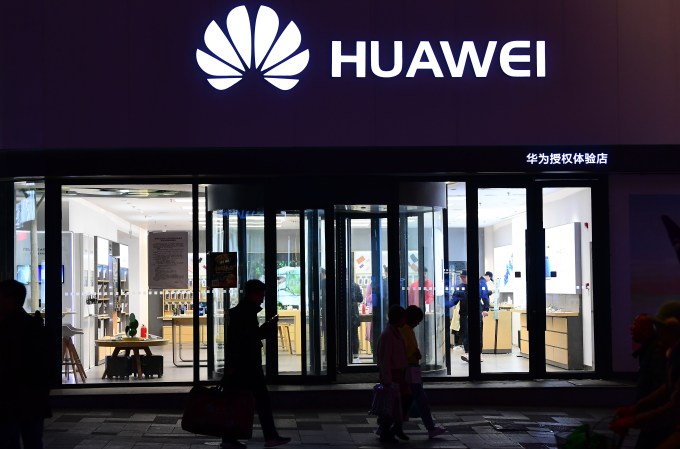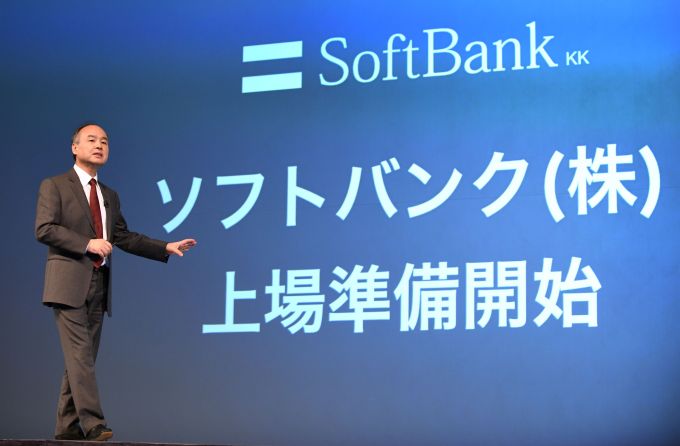Startups
The trust dilemma of continuous background checks

First, background checks at startups, then Huawei’s finance chief is arrested, SoftBank’s IPO is subscribed, and I am about to record our next edition of TechCrunch Equity. It’s Thursday, December 6, 2018.
TechCrunch is experimenting with new content forms. This is a rough draft of something new – provide your feedback directly to the author (Danny at [email protected]) if you like or hate something here.
The dilemma of continuous background checks
My colleague John Biggs covered the Series A round for Israel-based Intelligo, a startup that provides “Ongoing Monitoring” — essentially a continuous background check that can detect if (when?) an employee has suddenly become a criminal or other deviant. That’s a slight pivot from the company’s previous focus of using AI/ML to conduct background checks more efficiently.
Background checks are a huge business. San Francisco-based Checkr, perhaps the most well-known startup in the space, has raised $149 million according to Crunchbase, driven early on by the need to on-board thousands of contingent workers at companies like Uber. Checkr launched what it calls “Continuous Check” which also actively monitors all employees for potential problems, back in July.
Now consider a piece written a few weeks ago by Olivia Carville at Bloomberg that explored the rise of “algorithmic auditors” that actively monitor employee expenses and flags ones it feels are likely to be fraudulent:
U.S. companies, fearing damage to their reputations, are loath to acknowledge publicly how much money they lose each year on fraudulent expenses. But in a report released in April, the Association of Certified Fraud Examiners said it had analyzed 2,700 fraud cases from January 2016 to October 2017 that resulted in losses of $7 billion.
Here’s a question that bugs me though: we have continuous criminal monitoring and expense monitoring. Most corporations monitor web traffic and email/Slack/communications. Everything we do at work is poked and prodded to make sure it meets “policy.”
And yet, we see vituperative attacks on China’s social credit system, which …. monitors criminal records, looks for financial frauds, and sanctions people based on their scores. How long will we have to wait before employers give us “good employee behavior” scores and attach it to our profiles in Slack?
The conundrum of course is that no startup or company wants (or can) avoid background checks. And it probably makes sense to continually monitor your employees for changes and fraud. If Bob murders someone over the weekend, it’s probably good to know that when you meet Bob at Monday’s standup meeting.
But let’s not pretend that this continuous monitoring isn’t ruinous to something else required from employees: trust. The more heavily monitored every single activity is in the workplace, the more that employees feel that if the system allows them to get away with something, it must be approved. Without any checks, you rely on trust. With hundreds of checks, policy is essentially etched into action — if I can do it, it must meet policy.
In China, where social trust is extremely low, it likely makes sense to have some sort of scoring mechanism to substitute. But for startups and tech companies, building a culture of trust — of doing the right thing even when not monitored — seems crucial to me for success. So before signing up for one of these continuous services, I’d do a double take and consider the potentially deleterious consequences.
If I was a startup employee, I would think twice (maybe thrice?) before traveling to China

Photo by VCG/VCG via Getty Images
Last weekend, Trump and Xi agreed to delay the implementation of tariffs on Chinese goods, which led to buoyant Chinese (tech) stocks Monday in Asia time zones. I wrote about how that doesn’t make any sense, since delaying tariffs doesn’t do anything to solve the structural issues in the US/China conflict:
To me the market is deeply misjudging not only the Chinese economy, but also the American leadership as well.
And specifically, I wrote about constraints on Huawei and ZTE:
In what world do these prohibitions disappear? The U.S. national security agencies aren’t going to allow Huawei and ZTE to deploy their equipment in America. Like ever. Quite frankly, if the choice was getting rid of all of China’s non-tariff barriers and allowing Huawei back into America, I think the U.S. negotiators would walk out.
So it was nice to learn (for me, not for her) that the head of finance of Huawei was arrested last night in Canada at the United States’ request. From my colleague Kate Clark:
Meng Wanzhou, the chief financial officer of Huawei, the world’s largest telecom equipment manufacturer and second-largest smartphone maker, has been arrested in Vancouver, Canada on suspicion she violated U.S. trade sanctions against Iran, as first reported by The Globe and Mail.
Huawei confirmed the news with TechCrunch, adding that Meng, the daughter of Huawei founder Ren Zhengfei, faces unspecified charges in the Eastern District of New York, where she had transferred flights on her way to Canada.
If you wanted to know how the Trump administration was going to continue to fight the trade war outside of tariffs, you now have your answer. This is a bold move by the administration, targeting not just one of China’s most prominent tech companies, but the daughter of the founder of the company to boot.
China has since demanded her return.
Here is how this is going to play out. China is preventing the two American children of Liu Changming from leaving the country, essentially holding them hostage until their father returns to the mainland to face a criminal justice process related to an alleged fraud case. America now has a prominent daughter of a major Chinese company executive in their hands. That’s some nice tit-for-tat.
For startup founders and tech executives migrating between the two countries, I don’t think one has to literally worry about exit visas or extradition.
But, I do think the travel security operations centers at companies that regularly have employees moving between these countries need to keep very keen and cautious eyes on these developments. It’s entirely possible that these one-off “soft hostages” could flare to much higher numbers, making it much more complicated to conduct cross-border work.
Quick Bites
SoftBank’s IPO raises a lot of dollars

KAZUHIRO NOGI/AFP/Getty Images
Takahiko Hyuga at Bloomberg reports that SoftBank has sold its entire book of shares for its whopping $23.5 billion IPO. The shares will officially price on Monday and then will trade on December 19. This is a critical and important win for Masayoshi Son, who needs the IPO of his telecom unit to deleverage some of the risk from SoftBank’s massive debt pile (and also to continue funding his startup dreams through Vision Fund, etc.)
SoftBank Vision Fund math, part 2
Arman and I talked yesterday about the complicated math behind just how many dollars are in SoftBank’s Vision Fund. More details, as Jason Rowley pointed out at Crunchbase News:
In an annual Form D disclosure filed with the Securities and Exchange Commission this morning, SBVF disclosed that it has raised a total of approximately $98.58 billion from 14 investors since the date of first sale on May 20, 2017. The annual filing from last year said there was roughly $93.15 billion raised from 8 investors, meaning that the Vision Fund has raised $5.43 billion in the past year and added six new investors to its limited partner base.
I said yesterday that the fund size should be “$97 billion or $96.7 billion with precision, assuming this $5 billion reaches a final close.” So let’s revise this number again to $99 billion or $98.6 billion with precision, since it seems the $5 billion did indeed close.
What’s next
I am still obsessing about next-gen semiconductors. If you have thoughts there, give me a ring: [email protected].
Thoughts on Articles
Hopefully more reading time tomorrow.
Reading docket
What I’m reading (or at least, trying to read)
- Huge long list of articles on next-gen semiconductors. More to come shortly.
-

 Entertainment7 days ago
Entertainment7 days agoExplainer: Age-verification bills for porn and social media
-

 Entertainment6 days ago
Entertainment6 days agoIf TikTok is banned in the U.S., this is what it will look like for everyone else
-

 Entertainment6 days ago
Entertainment6 days ago‘Night Call’ review: A bad day on the job makes for a superb action movie
-

 Entertainment6 days ago
Entertainment6 days agoHow ‘Grand Theft Hamlet’ evolved from lockdown escape to Shakespearean success
-

 Entertainment6 days ago
Entertainment6 days ago‘September 5’ review: a blinkered, noncommittal thriller about an Olympic hostage crisis
-

 Entertainment6 days ago
Entertainment6 days ago‘Back in Action’ review: Cameron Diaz and Jamie Foxx team up for Gen X action-comedy
-

 Entertainment6 days ago
Entertainment6 days ago‘One of Them Days’ review: Keke Palmer and SZA are friendship goals
-

 Entertainment3 days ago
Entertainment3 days ago‘The Brutalist’ AI backlash, explained

















